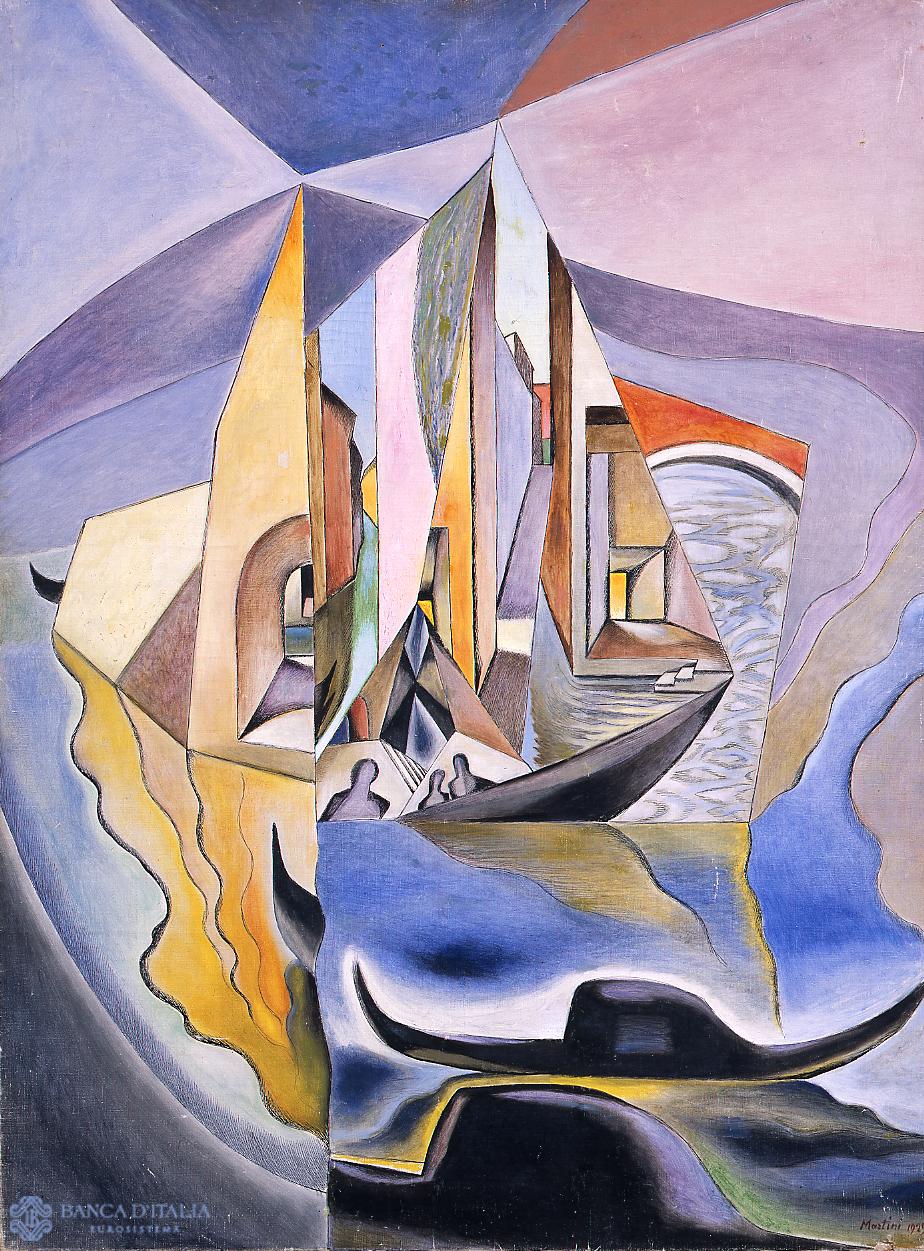The artist spent several years in Venice, a city he adored, so much so that in 1924 he designed the Tetiteatro especially for it. This was intended to be a floating theatre, whose aquatic whimsy reflected his love for the lagoon. In this painting, Martini abandons his more macabre proto-Surrealist visions in favour of a style that appears to be permeated by the Cubist, and especially Futurist, penchant for breaking down images, and almost attains the Aeropittura-style aerial view. In a composition of wedges and triangles we can make out narrow Venetian streets, canals, passageways, and bridges, in a synthesis of the city initialled towards the bottom right by a gondola, whose black cabin’s contours are repeated and magnified in the foreground. Where the two triangles in the upper section intersect, the vision opens out and tumbles forward like the houses and slanted planes of pop-up books for children.
The refreshing inventiveness of the work is combined with a soft palette based on the contrast between the brighter and darker zones of the upper and lower sections.
Alberto Martini, Venezia surreale
Venezia surreale
20th century AD
Painting
Abstract

Artist
Date
1929
Material and technique
Oil on canvas
Measurements
80 x 60 cm
Compiler
Augusta Monferini
